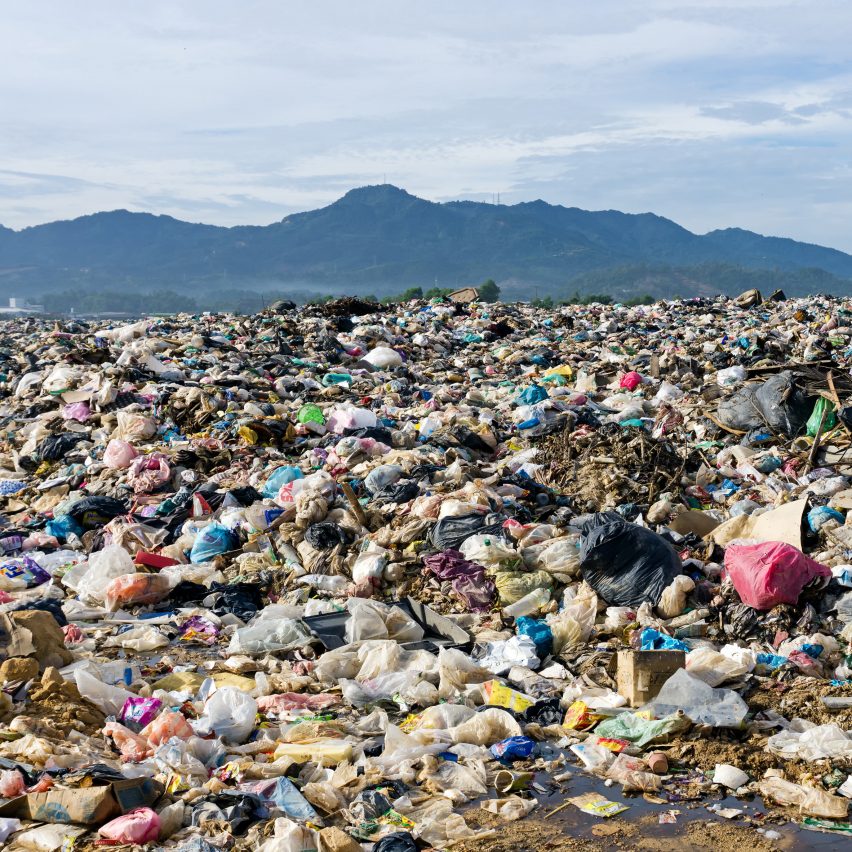
Bags made of supposedly biodegradable plastics remain intact and useable three years after being dropped in the sea or buried underground, researchers have found.
The study, carried out by the University of Plymouth's International Marine Litter Research Unit and published in the journal of Environmental Science and Technology, challenges assumptions that switching to biodegradable plastics could reduce ocean-plastic pollution.
"Our results showed that none of the bags could be relied upon to show any substantial deterioration over a three-year period," said Imogen Napper, who co-authored the report.
She said it is therefore "not clear" that biodegradable plastics can help reduce marine litter.
Questions raised about "biodegradable" labels
Five types of plastic carrier bag, all widely available on the UK high street, were used for the experiment.
They included a biodegradable bag, an oxo-biodegradable bag, and a compostable bag, as well as a standard plastic bag made of high-density polyethylene.
Each bag was left exposed to the kind of conditions they would encounter if they were discarded as litter, including being left in the open air, buried under soil or submersed in the sea.
The scientists tested the bags at regular intervals, monitoring them for changes in strength, texture and chemical structure.
"This research raises a number of questions about what the public might expect when they see something labelled as biodegradable," said Richard Thompson, who heads the unit that conducted the research.
"We demonstrate here that the materials tested did not present any consistent, reliable and relevant advantage in the context of marine litter," Thompson said. "It concerns me that these novel materials also present challenges in recycling," he added, since biodegradable plastics need to be recycled separately from conventional plastics.
Bags still useable after three years in the sea
After three years in the soil or a marine environment the biodegradable bag, the oxo-biodegradable bag and the standard plastic bag remained fully functional.
"After three years, I was really amazed that any of the bags could still hold a load of shopping," said Napper.
University of Plymouth researchers explain their findings in this video
"For a biodegradable bag to be able to do that was the most surprising," she said.
"When you see something labelled in that way, I think you automatically assume it will degrade more quickly than conventional bags. But, after three years at least, our research shows that might not be the case."
"No material is magic" says compostable bag maker
The compostable bag did disappear in the sea after just three months, but was still present in the soil when tested after 27 months. However it was not able to hold a load without ripping.
All of the five kinds of bags broke down into fragments within nine months when exposed to the air.
"University of Plymouth’s research is a timely reminder that no material is magic, and can only be recycled in its correct facility," said a spokesperson for Vegware, the company that provided the compostable bags for the research.
"Discarding a product in the environment is still littering, compostable or otherwise. Burying isn’t composting."
Vegware products should be disposed of at professional composting facilities, they said, or put in the general waste if that option wasn't available.
Bioplastics could be bad for environment
Plastics described as biodegradable can be made from bioplastics – plastics made from renewable biomass sources such as corn, algae or chitin – or from petrochemicals that have added elements that help them biodegrade.
However the term "biodegradable" can be misleading, since it does not indicate how long the material takes to degrade, or under what conditions.
"At Vegware we don't say biodegradable," said the Vegware spokesperson. "This vague term has no defined timescale or conditions."
Oxo-biodegradable plastics supposedly break down more rapidly than regular plastics when exposed to oxygen. Compostable plastics break down into compost but only if placed in a dedicated composter that has the correct temperature and humidity.
Architect and recycling expert Arthur Huang recently warned that bioplastics could be worse for the environment than standard plastics made using fossil fuels.
"If we use them the same way [as conventional plastics] they are just as bad if not worse," he told Dezeen earlier this month. "They change the pH value of soil and water as they degrade, and they take away valuable food supplies."
A 2015 report from the United Nations found that biodegradable plastics rarely break down fully in marine environments, and labelling them as such could even encourage people to be more casual about littering.
One hundred billion plastic bags are sold in the European Union each year, according to a 2013 report from the European Commission. Up to 8 billion of these end up as litter.
The post Biodegradable plastics offer "no advantage" over conventional plastics in reducing ocean pollution appeared first on Dezeen.
http://bit.ly/2WdAcT7
twitter.com/3novicesindia
No comments:
Post a Comment